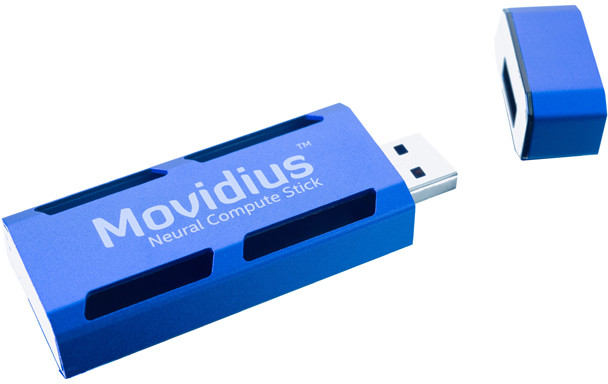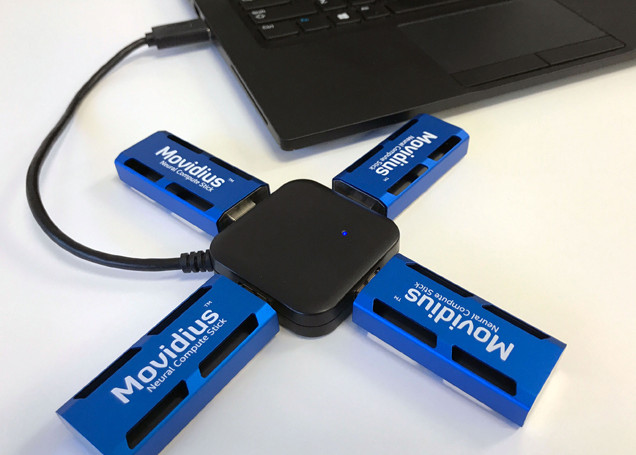Intel has released several Compute Stick over the years which can be used as tiny Windows or Linux computer connected to the HDMI port of your TV or monitor, but Movidius Neural Computer Stick is a complete different beast, as it’s a deep learning inference kit and self-contained artificial intelligence (A.I.) accelerator that connects to the USB port of computers or laptops.
 Intel did not provide the full hardware specifications for the kit, but we do know the following specifications:
Intel did not provide the full hardware specifications for the kit, but we do know the following specifications:
- Vision Processing Unit – Intel Movidius Myriad 2 VPU with 12 VLIW 128-bit vector SHAVE processors @ 600 MHz optimized for machine vision, Configurable hardware accelerators for image and vision processing; 28nm HPC process node; up to 100 gigaflops
- USB 3.0 type A port
- Power Consumption – Low power, the SoC has a 1W power profile
- Dimensions – 72.5mm x 27mm x 14mm
You can enter a trained Caffe, feed-forward Convolutional Neural Network (CNN) into the toolkit, profile it, then compile a tuned version ready for embedded deployment using Intel/Movidius Neural Compute Platform API. Inference occurs in real-time in the stick itself, and no cloud connection is needed. You can even connect multiple Movidius Compute Sticks to the same computer to scale performance.
It can help bring artificial intelligence to drones, robots, security camera, smart speakers, and anything that can leverage deep learning. The video below also shows the USB Compute Stick connected to what looks like a development board, so the target platform does not need to be powerful with most of the hard processing going inside in the stick. It currently does need to be an x86-64 computer running Ubuntu 16.04, so no ARM support.
Movidius Neural Compute Stick is sold for $79 via RS components and Mouser. You’ll find the purchase links, getting started guide and support forums on Movidius Developer site.

Jean-Luc started CNX Software in 2010 as a part-time endeavor, before quitting his job as a software engineering manager, and starting to write daily news, and reviews full time later in 2011.
Support CNX Software! Donate via cryptocurrencies, become a Patron on Patreon, or purchase goods on Amazon or Aliexpress





